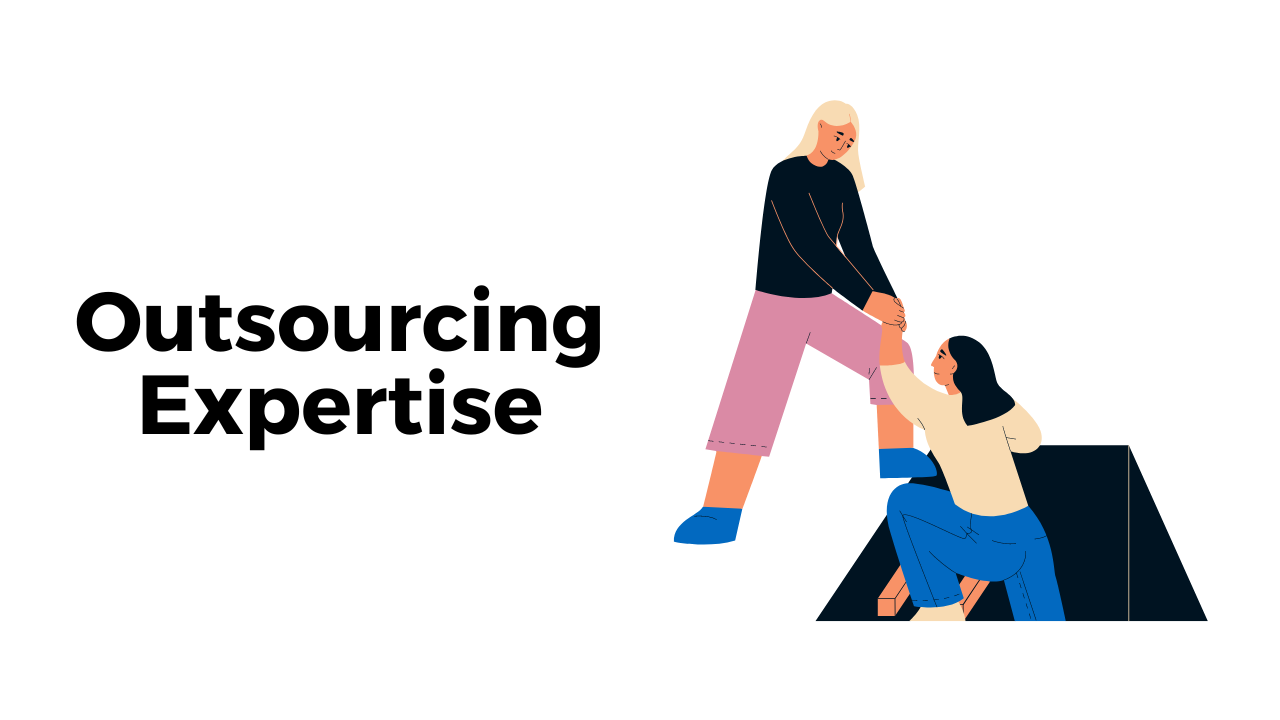The Role of Mentors and Advisors in Startup Success
Aug 07, 2023
Starting a business can be a daunting task, especially if you're venturing into uncharted territory. How can you navigate the challenges and increase your chances of success? The answer lies in seeking guidance from experienced mentors and advisors who have been through it all before.The startup world is filled with stories of triumph and failure, and many successful entrepreneurs credit their mentors and advisors for their achievements. These seasoned professionals provide invaluable insights, support, and guidance that can make all the difference in the early stages of a startup.
In the fast-paced and competitive startup landscape, having a mentor or advisor can be a game-changer. They can help you avoid common pitfalls, make strategic decisions, and connect you with valuable resources. Whether you're a first-time entrepreneur or a seasoned business owner looking to launch a new venture, understanding the role of mentors and advisors is crucial for achieving startup success.
These article is focused on offering valuable insights into the mentoring process, making informed decisions about choosing between Start up Mentor or Start up Advisor and to allow us to examine and assess the qualities required for startup mentor or Advisor.
Start up Advisor
A startup advisor is a more general role, often used synonymously with the term mentor. Advisors are experienced entrepreneurs or industry professionals who offer guidance on a variety of issues related to launching and running a business. They can provide feedback on business plans, give advice on marketing strategies and tactics, and provide input on key personnel decisions.
Tips for picking the best advisor
1. Look for Relevant Experience: When considering potential advisors, the most important factor is whether they have relevant experience in your industry or with a similar venture. This can help you avoid costly mistakes and provide valuable feedback on key issues.
2. Define the Role: It’s important to be clear about what role you’d like the advisor to play. Do you need someone to review your business plan? Someone who can provide guidance on financial matters? Or perhaps someone who can offer advice and support as you deal with customer acquisition or fundraising? Knowing what type of assistance you are looking for will help you identify the right candidates.
3. Seek Out Different Perspectives: Try to find advisors with different backgrounds and perspectives. Having multiple points of view can provide a more comprehensive approach to problem solving.
4. Establish Expectations: It’s important to establish expectations for both parties before entering into any advisory relationship. This should include the advisor’s expected commitment and timeframe, as well as appropriate compensation for their services, if applicable.
Start up Mentor
The startup mentor is a more specific role, usually associated with providing guidance on the technical and operational aspects of launching a company. Mentors typically have direct experience in building companies, and their advice is often related to helping founders create sound processes for production, sales, marketing, customer service, or other operations. They may also have specialized knowledge in engineering, coding, design, finance, or other areas.
Tips for picking the Startup Mentor
1. Consider Their Track Record: Experienced mentors can be invaluable resources, as they’ve been through the process of launching and running a business many times before. Make sure to research their background and track record of success, especially when it comes to startups.
2. Look at Their Network: A mentor with an extensive network is extremely valuable, as they may have contacts who can provide invaluable assistance in areas such as fundraising or customer acquisition. Ask potential mentors if they know of any venture capitalists or other professionals you could reach out to for help.
3. Make Sure Your Goals Align: Before committing to a mentor, make sure that your goals are aligned. If you’re looking for guidance on certain aspects of launching a business, make sure the mentor has knowledge and experience in those areas.
4. Set Clear Expectations: As with any advisory relationship, it’s important to set clear expectations for both parties before beginning the relationship. This should include the mentor’s expected commitment and timeframe, as well as how they will be compensated for their services, if applicable.
Benefits of having a mentor for startup success
Having the right mentors and advisors can be invaluable for startup success. Mentors and advisors with a deep understanding of the process of launching and running a business can provide valuable advice on key issues such as business plans, marketing strategies, fundraising and customer acquisition. They can also offer valuable insights into industry trends and potential investors. Additionally, mentors may also have access to an extensive personal network that could help entrepreneurs make important connections in the startup ecosystem. Ultimately, having experienced mentors and advisors can increase the chances of achieving successful startup goals.
Avoid Costly Mistakes
Effective mentors for startups tend to have certain key qualities, such as a wealth of experience in business, a deep understanding of the startup process and the ability to provide sound advice on technical and operational aspects. They should also have strong connections within the startup ecosystem and be able to provide valuable insights into industry trends and potential investors. Additionally, effective mentors should be willing and able to commit enough time to help entrepreneurs reach their goals, while being open-minded and supportive of new ideas.
It is important for entrepreneurs to avoid common mistakes when building relationships with mentors and advisors. This includes not setting clear expectations from the outset, not defining compensation or financial rewards for mentors, and not having a clear understanding of their own product-market fit. Additionally, entrepreneurs should be mindful of who they select as advisors – while it may be tempting to select well-known or high-profile figures, it is important to ensure that their expertise and experience aligns with the goals of the startup.
In the end, having a mentor or advisor with experience and knowledge that is in line with your startup goals can be invaluable. Having someone who is invested in your success and willing to share their network of contacts can open doors to opportunities you may not have considered otherwise. Furthermore, having an experienced mentor or advisor can help prevent costly mistakes early on in the development of your startup by providing advice on key issues such as marketing strategies, fundraising and user growth. Ultimately, when it comes to successful startups, the right mentor can make all the difference – so it’s important to take the time to find an ideal mentor that will best suit the business needs.
The role of mentorship in securing funding and scaling a business
Mentors and advisors are essential to the success of any startup. They provide valuable advice and guidance on all aspects of launching and running a business, from product development to marketing strategies. Additionally, experienced mentors can offer insights into industry trends and potential investors that can be invaluable for securing funding.
However, it’s important to pick the right mentors for your particular startup. Make sure to research their background and track record of success before committing to a mentor-mentee relationship. Additionally, make sure that your goals align with those of the mentor in order to ensure that both parties benefit from the working relationship.
Real-life examples of successful mentorship relationships in startups can help entrepreneurs understand how mentors have helped others achieve success. For example, the relationship between Steve Jobs and Mike Markkula of Apple was instrumental in launching the iconic computer company. Similarly, Jack Dorsey’s mentorship from bloggers at Twitter helped to propel the social media platform into a global phenomenon, Mark Cuban's involvement with startup accelerator Shark Tank, Bill Gates' support of tech entrepreneur Paul Allen's early ventures, and Steve Jobs' mentorship of Apple co-founder Steve Wozniak. These examples illustrate how having the right mentor can make a big difference in the success of an early-stage startup by providing guidance and advice on issues such as business model development, financial planning and sales strategies.
How do you engage with an advisor vs. a mentor?
The role of an advisor is different from that of a mentor, but both are essential for the success of any startup. An advisor can provide external expertise and advice on key business issues such as financial planning, marketing strategies, and fundraising. They may also have access to networks and contacts that could prove invaluable in helping the startup succeed. On the other hand, mentors serve as a sounding board and offer more experiential knowledge than advisors do. They provide guidance on tackling various business challenges based on their own experiences.
For entrepreneurs, connecting with the right mentor or advisor is critical for success. Whether you’re seeking advice on fundraising, developing a business model, or marketing your product, having an experienced professional in your corner can make a huge difference. One of the best resources available to startups is networking events and online communities geared towards entrepreneurs. In addition to providing an opportunity to connect with potential mentors, these events offer valuable insight into industry trends and can help broaden your network.Working with advisors and mentors will give you access to specialized knowledge, market access, and marketing specialists, which can all be invaluable resources for any startup founder.
Once you have identified potential advisors and mentors, it’s time to establish a working relationship. The best way to start is by scheduling regular meetings with your mentor or advisor. This will give you the opportunity to discuss progress, gain advice on upcoming challenges, and adjust strategies as needed. It is also crucial that entrepreneurs are open and honest in their conversations with their mentors and advisors. Doing so will ensure that both parties are able to make the most of the relationship.
Making the most of mentors and mentoring relationships
Mentors and advisors can have a profound impact on the success of a startup. They provide a wealth of knowledge, connections to key resources, and support in making informed decisions. Entrepreneurs should take advantage of networking opportunities to build a strong support network that includes mentors and advisors who understand their business goals, market dynamics, current phase of growth , and chances of success. By leveraging the knowledge and experience of a mentor or advisor, entrepreneurs can make tough decisions with confidence and gain access to resources that may be difficult to access without their help. With mentors and advisors in place, entrepreneurs can build a successful business from the ground up with confidence.
Once you’ve built a strong network of mentors and advisors, it’s time to start making the most of their expertise. In order to get the fullest benefit from your relationships, it is important to be open and honest with each other. Your mentor or advisor should have an understanding of both your short-term and long-term goals as well as your current business situation in order to provide relevant advice. It is also important to be receptive to feedback and new ideas, as your mentor or advisor may offer unique perspectives that could prove beneficial. Finally, remember that mentors and advisors can make a profound impact on the success of your business, so it is important to treat them with respect and appreciation.
In conclusion, mentors and advisors play a crucial role in the success of startups. Their guidance, expertise, and support can help entrepreneurs navigate the challenges and pitfalls of starting a business, leading to greater chances of success. By leveraging the knowledge and experience of mentors and advisors, startups can avoid costly mistakes, make informed decisions, and accelerate their growth. Therefore, it is essential for entrepreneurs to seek out and build strong relationships with mentors and advisors who can provide valuable insights and guidance throughout their startup journey.
Stay connected with news and updates!
Join our mailing list to receive the latest news and updates from our team.
Don't worry, your information will not be shared.
We hate SPAM. We will never sell your information, for any reason.







